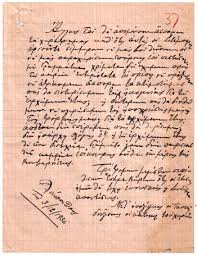Trevor Todd and Jackson Todd have over 60 years combined experience in handling estate disputes.
Re Koehler Estate 2025m BCSC 1110 exercised S. 58 WESA to cure an otherwise “normal” properly prepared will but for hand written changes made by the deceased with the assistance of a friend on the same document, wherein the executor was changed and the residue was left to the friend who assisted with the hand notations on the will.
The prime asset of the estate was a house worth $700,000.
The LAW
Court order curing deficiencies
58(1) In this section, “record” includes data that
(a) is recorded or stored electronically,
(b) can be read by a person, and
(c) is capable of reproduction in a visible form.
(2) On application, the court may make an order under subsection (3) if the court determines that a record, document or writing or marking on a will or document represents
(a) the testamentary intentions of a deceased person,
(b) the intention of a deceased person to revoke, alter or revive a will or testamentary disposition of the deceased person, or
(c) the intention of a deceased person to revoke, alter or revive a testamentary disposition contained in a document other than a will.
(3) Even though the making, revocation, alteration or revival of a will does not comply with this Act, the court may, as the circumstances require, order that a record or document or writing or marking on a will or document be fully effective as though it had been made
(a) as the will or part of the will of the deceased person,
(b) as a revocation, alteration or revival of a will of the deceased person, or
(c) as the testamentary intention of the deceased person.
(4) If an alteration to a will makes a word or provision illegible and the court is satisfied that the alteration was not made in accordance with this Act, the court may reinstate the original word or provision if there is evidence to establish what the original word or provision was.
[7] I have been referred to three judgments in respect of the proper application of s. 58 of the WESA in such circumstances: Hadley Estate (Re), 2017 BCCA 311, at paras. 35-40; Gibb Estate (Re), 2021 BCSC 2461, at paras. 40-48; and Jakonen Estate (Re), 2022 BCSC 2261, at para. 44.
[8] It is clear from these authorities that the focus of the court on a s. 58 application is to determine whether the testamentary document is authentic and represents a fixed and final testamentary intention. The factors listed in Jakonen assist the court in making that determination. Those factors include:
a) Was the document or record made by the Deceased or by a third party? A document made by the Deceased is more likely to be given effect than a document made by a third party, including a lawyer’s draft: George v. Daily (1997), 143 D.L.R. (4th) 273 (Man. C.A.).
b) Where was the document or record found? If the Deceased left the document or record in a prominent place where it was likely to be found, or with other testamentary documents, the document or record is more likely to be given effect: Skopyk Estate, 2017 BCSC 2335 at para. 22
c) Is the document or record signed, or is there any other compliance of the formal requirements for a valid will? The greater the degree of compliance with the formal requirements, particularly if the document is signed, the greater the likelihood that the document or record will be given effect: Estate of Young, 2015 BCSC 182 at para. 39
d) Is there a title on the document or record? If a document or record is given the title “will” or “codicil” or a similar notation, it is more likely to be given effect: Smith Estate (Re), 2016 BCSC 350 at para. 23.
e) Is the language of the document or record dispositive, and does it have an air of finality? If so, it is more likely to be given effect: Smith Estate at para. 23.
f) Does the document or record provide for a rational distribution? If so, it is more likely to be given effect: Skopyk Estate at para. 27
g) Is the document or record consistent with other evidence of the Deceased’s intentions? If so, it is more likely to be given effect: Estate of Young at para. 3
[9] Factors a), b), and c) from Jakonen include consideration of who made the notations on the document and other circumstances surrounding its preparation. In this case, Ms. Figgess’ evidence is that the notations were made by her, and not by the deceased. With respect to where the will was found, Ms. Figgess said that the deceased asked her to keep his will at her residence in a file stored in a box marked “TPK,” which she did. With respect to whether the document is signed, the Original Will is, but there are no signatures in respect of the handwritten changes.
[10] Item e) from Jakonen directs the court to consider whether the language is dispositive. It is my view, having looked at the way the changes are expressed, the Original Will was clear as to what gifts were to go to whom, and the handwritten amendments are sufficiently clear as well. They simply remove one beneficiary and replace that person. So in my view, there is no issue with clarity.
[11] This application, in my view, stands to be determined on items f) and g) from Jakonen: whether there is a rational distribution, and whether it is consistent with other evidence as to the deceased’s intention, looking at the available evidence as a whole. I appreciate that the deponent on whom I must rely in the circumstances is the person who benefits directly from the handwritten alterations to the will. That said, Ms. Figgess was also someone the deceased relied upon to assist him with such matters and someone that he apparently at all material times intended to make a gift to from his estate.
[12] The evidence indicates that at his death, the deceased was not in a marriage-like relationship and had no natural or adopted children. The people mentioned in his will were all friends with whom he wishes to share his estate. Ms. Figgess’s evidence with respect to the circumstances surrounding Mr. Mercier’s removal from the will is set out in her affidavit #2 as follows (wherein “Thomas” is the deceased, and “Doug” is Mr. Mercier):









